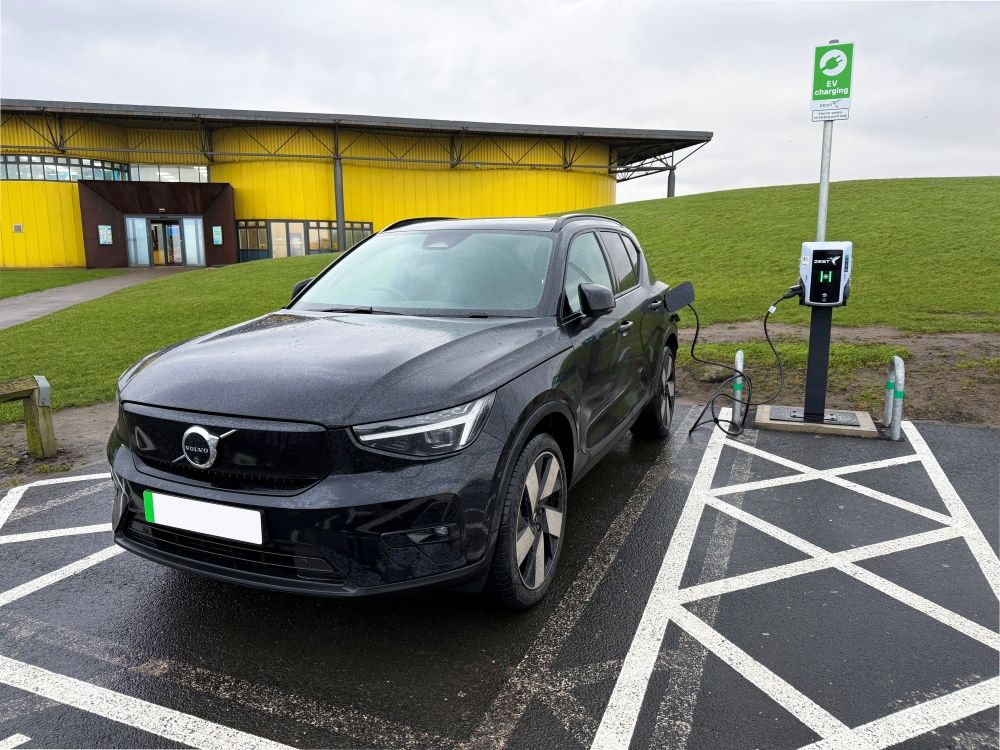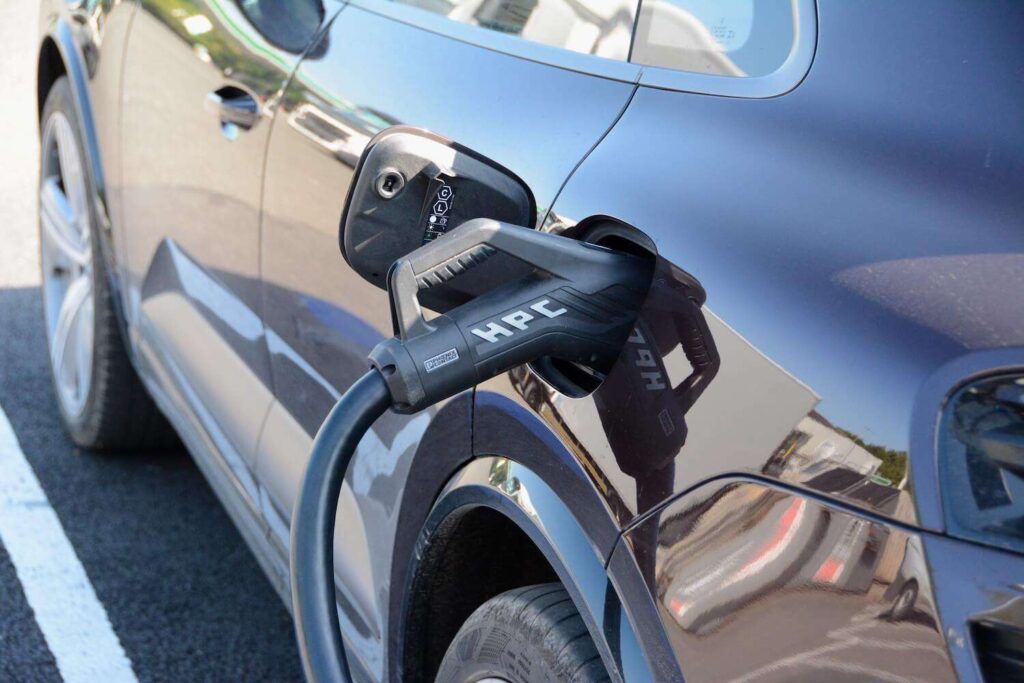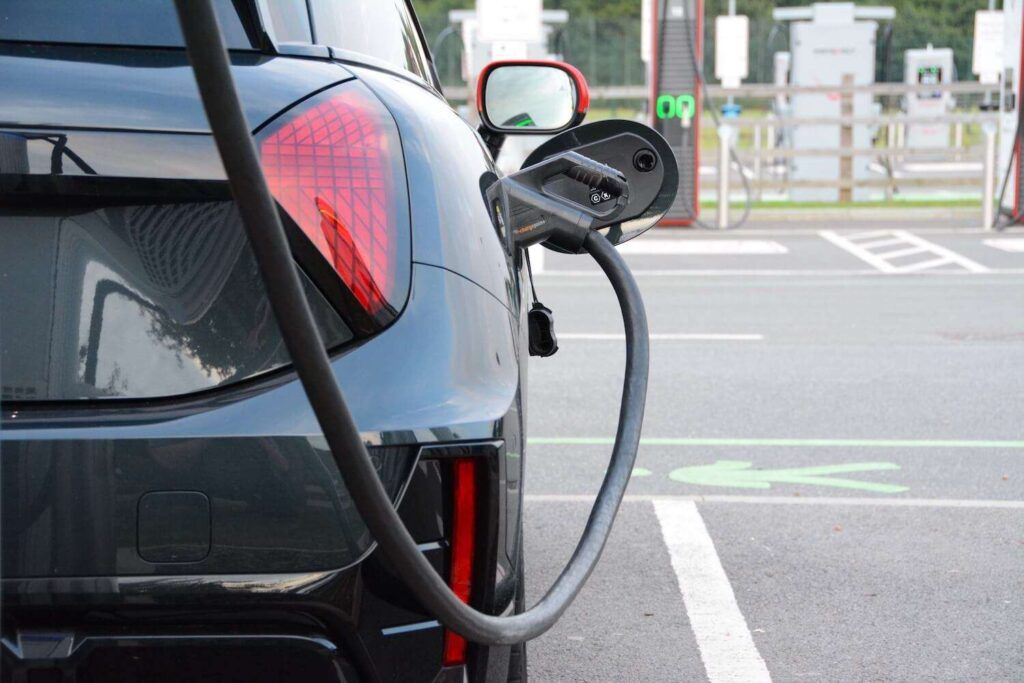The Labour Party will form the new government in the UK after 14 years of Conservative rule – with the party expected to implement a number of clean energy and transport policies.
The country went to the polls on Thursday 4th July with Labour winning a majority of seats. With a handful of results still to come, Labour had won 410 seats, the Conservatives 119 and the Liberal Democrats 71 – their best ever performance.
Keir Starmer will be the new Prime Minister. He said: “Change begins now. We said we would end the chaos, and we will, we said we would turn the page, and we have. Today, we start the next chapter, begin the work of change, the mission of national renewal and start to rebuild our country.”
Ahead of the election, a number of policies were included in Labour’s manifesto, including a pledge to reinstate the ban on the sale of new petrol and diesel vehicles to 2030. It would also work to support the transition to electric vehicles by accelerating the rollout of new chargepoints.
In terms of clean energy, the manifesto set out plans to double onshore wind, triple solar power, and quadruple offshore wind by 2030. In addition, it planned to invest in carbon capture and storage, hydrogen and marine energy. A new Energy Independence Act would “establish the framework for Labour’s energy and climate policies”, it said.
Labour will also set out the publicly owned Great British Energy to deliver clean power by co-investing in leading technologies, supporting capital-intensive projects; and deploying local energy production. It described the latter as “an essential part of the energy mix and reduces pressures on the transmission grid”.
Labour also said it would deploy more distributed production capacity through its Local Power Plan, partnering with energy companies, local authorities, and co-operatives to install thousands of clean power projects. In addition a “British Jobs Bonus” would “reward” clean energy developers through the allocation of £500 million per year from 2026.
Ahead of the election, professionals from the clean energy and transport sectors provided their views on what actions they’d like to see the new Government implement – including a clearer strategy for electric vehicles (EVs) and making them more affordable.
Industry reaction
A focus on electrification and investment in the UK motor industry should be among the priorities of the new Labour government, says the Vehicle Remarketing Association (VRA).
Philip Nothard, chair at the trade body, said that while it was clear that the administration wouldn’t have large sums of money to spend, it should be concentrated in areas that produce the best results.
“The Labour message throughout their campaign and really for the last 2-3 years has been all about investment and growth, and we believe that two of the key areas that would best respond to funding are electrification and motor manufacturing.
“We’d like to see measures to support the transition to electrification through both an acceleration of the creation of charging infrastructure – especially on urban streets – and direct help for people who want to buy a used EV.
“It’s pretty clear that the used EV market is not yet functioning in anything approaching a normal manner and this really needs to start happening if the government is serious about its approach to zero emissions.
“Also, we need to see more investment for manufacturers who are switching to EVs over this decade. The levels of competition in the market are ferocious, and car and van makers operating in the UK will need support to compete successfully.”
Asif Ghafoor, CEO of Be.EV, commented:
“Labour should introduce a simple mandate that compels every local authority to open up 50% of their land for private companies to install EV chargers. They don’t have the capital or expertise to do it themselves. We don’t want any more rules or changes – that’s a headache for everyone. What we really need is continuity and certainty. This will really help charging networks to expand.
“There needs to be some encouragement to drivers, and we have a few options here. We could reduce the power cost for those who switch and get rid of the VAT on public EV charging costs. Norway is a good example. They gave free exemptions to the toll for EV drivers and gave free local authority parking as well. These aren’t expensive and they went a long way in creating a more positive feel about EVs.
“We have an opportunity to be world leaders in EV chargers. We have the expertise and capital to do it, and if we do it successfully, we can export this to other countries, creating jobs and investment along the way.
The new Government should bring the 2035 ban back to 2030. It’s an achievable goal that won’t cost the Government a lot, but will be a huge psychological boost that will get people feeling good about EVs again.”
Trevor Hutchings, CEO of the REA (Association for Renewable Energy and Clean Technology), said:
“We’re pleased to see an incoming Labour administration committed to clean growth and energy decarbonisation.
“We would encourage Sir Keir and his team to galvanise a sector that can boost the UK economy and achieve his target of the highest growth in the G7. Recent research suggests that the previous Governments’ cuts in renewables and clean technology investment over the last decade has added £22bn to UK energy bills. Investing in our sector can mitigate against rising energy costs, improve energy security, create jobs and growth, improve international competitiveness and help address climate change.
“The impacts of climate change are already being felt around the world and the longer we delay the higher the costs of addressing it become. We will also miss out in the global race for investment and talent in the technologies of the future. The REA is challenging this administration to be bold and quickly seize this opportunity.”
Sue Robinson, Chief Executive of the National Franchised Dealers Association (NFDA), commented:
“Through NFDA’s manifesto and General Election survey, dealerships have clearly expressed their views, and it is crucial that their voices are heard.
“The automotive retail industry has highlighted critical issues including restimulating the private electric vehicle market, addressing the ongoing skills shortage, and improving electric vehicle charging infrastructure, among others.
“NFDA will immediately engage with the new Labour government on these key issues, reaching out to Parliamentarians as the new Cabinet begins to form.
“The next few months and years will be pivotal for our industry. It is essential that the new government works with NFDA and the automotive sector throughout the UK to offer robust support on these key issues while unlocking the dynamic potential of this sector.”
Chris Allen, Managing Director, LEVC:
“LEVC congratulates the Labour Party and welcomes the new Government. The new Prime Minister and his party have made a promise to accelerate the UK’s transition to an electrified future, including a pledge to reinstate the 2030 ICE ban which we welcome. However, to deliver on this ambition and seize the opportunities for manufacturing growth that will enable it, we need targeted consumer incentives to continue for commercial and niche vehicle drivers, including for taxis. More than half of London’s black cabs are now zero-emission capable – with uptake growing in towns and cities nationwide.
“To keep momentum, the new Government must continue the Plug-in Taxi Grant beyond the current financial year. Removing VAT from public charging networks will also keep costs down for business (and private) users to help ensure switching to an EV is an equitable choice for those without access to home charging. “LEVC also calls on the new government to outline a clear industrial strategy to provide some much needed certainty to help secure investment in the UK. This investment will be critical to driving supply chain development and helping to maximise the input of the country’s high skills base and manufacturing excellence. These elements will be key in affirming the UK’s relevance in the developing global automotive landscape. LEVC looks forward to working with the new Government to further accelerate the adoption of clean and accessible public mobility solutions.”
Mike Nakrani, CEO, VEV:
“The new government’s pledge to reinstate the 2030 ICE ban and accelerate EV charging infrastructure, is a positive signal for the eMobility industry. Whilst commercial fleets are already leading the way in the transition from diesel to EVs, this is reliant on fleet-owners building their own charging infrastructure in their depots. Transport and logistics suppliers are key contributors to scope 3 carbon emissions, moving goods and services through the country’s supply chains, and they need a network of charging infrastructure across the country – ‘green corridors’ – or funding support to build it.
“The new government’s pledge to deliver £1.8 billion investment in our port infrastructure would be a key element of the UK’s net zero journey. As hubs that feed our supply chains and the economy itself, ports are talking to us about how electrification of their supply chains will be a major step forward in UK decarbonisation.”
David Savage , Geotab VP for UK and Ireland:
“Congratulations to our new PM Keir Starmer and the Labour Party, but we believe they need to go further on EV than the pledges included in their manifesto. Reinstating the ICE ban is welcome, but we also need meaningful incentives to drive more private and fleet buyers into electric cars and vans, such as grants and charging initiatives.”
Richard Moore, Battery Strategy Expert, Greenpower Park:
“Greenpower Park congratulates the Labour Party on its election victory and welcomes the new Government. Sir Keir Starmer and his party have made clear commitments to creating a Gigafactory, and associated supply chain, in the West Midlands and accelerate the UK’s transition to an electrified future. From automotive to energy storage, there is an urgent need to secure global battery manufacturers along with the associated supply chain to meet the growing demand for electrification in the UK. Electrification, across all sectors, is of strategic importance for the UK and it needs to be part of the new Government’s broader industrial strategy which will ensure that potential investors consider the UK in the future.
“Greenpower Park is a trailblazing centre of excellence for electrification, battery technology and manufacturing. With the West Midlands Gigafactory as its anchor tenant, it has unrivalled access to the most highly skilled workforce in the country and is the only such site in the UK to sit within an Investment Zone.Greenpower Park is the best in the UK for battery development, manufacturing and recycling. It is perfectly placed to act as a hub for the UK’s rapidly growing battery industry. We now look forward to working with the new Labour government to realise our ambition for Greenpower Park, the UK’s Centre of Clean Energy and Electrification.”
BVRLA Chief Executive, Gerry Keaney said:
“We congratulate Keir Starmer and his party on their strong election win. The change of government brings a change of direction. After a period of great political uncertainty, the industry collectively hopes for stability that will allow action to be taken and progress to be achieved.
“The time for blanket decarbonisation policies has been and gone. As the transition towards cleaner, greener vehicles evolves, the need for specific interventions becomes clear. Up to now, powerful tax incentives for company-provided cars have accelerated adoption among fleets but left retail and rental lagging. For the transition to be embraced by all sectors, targeted action is needed. Charging infrastructure, the used market, and vans are just three of the areas demanding closer attention.
“Guided by our members, we will continue to be a clear voice for the sector and its needs. Our work around the rental sector, used BEV market and transition to electric vans will ramp up as we continue to grow our influence with the Labour government and the key departments shaping UK transport.”
Dootrix’s Chief Technology Officer, Kev Smith, commented:
“The Conservatives’ decision to push back the phasing out of ICE vehicles was a massive blow to the automotive industry, which has invested heavily to meet the original 2030 target, as well as the planet, which needs us to end our dependency on fossil fuels.
“Working alongside GRIDSERVE since 2019, Dootrix understands the commitment and investment already made by both EV pioneers and the traditional automotive industry, and we’ve helped develop effective solutions to facilitate meeting the 2030 target.
“Visionaries such as GRIDSERVE are building the infrastructure, consumer education and cultural change to enable Britian to be at the forefront of delivering the necessary systemic change to tackle the environmental crisis.
“We’re calling on Keir Starmer to take advantage of the unique opportunity that he has as the new Prime Minister to honour his party’s commitment, made in 2023, to work with the automotive sector to hit the original target, and ensure Britain is leading the drive for change.”
More reaction to follow.
Image courtesy of Shutterstock.












